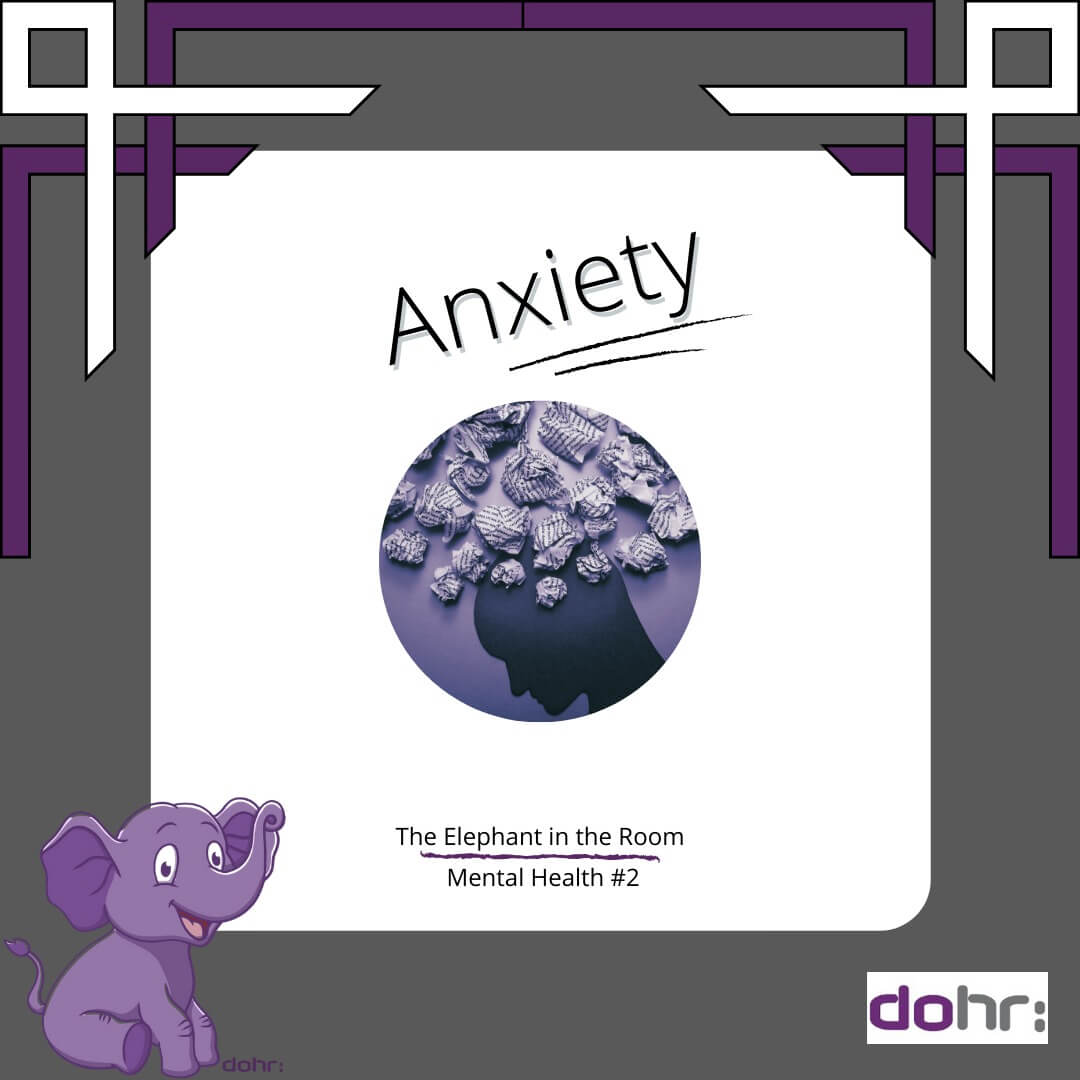Anxiety can be a good thing. It helps us to avoid dangerous situations and it motivates us to solve problems. However, like many mental health issues there is a spectrum of anxiety which ranges from good mental health through to debilitating mental health.
There are a number of different disorders which are classified as anxiety and these include Generalised Anxiety Disorder (GAD), Panic Disorder, Phobic Disorder, Post-Traumatic Stress Disorder (PTSD) and Obsessive-Compulsive Disorder (OCD).
Anxiety manifests in different ways for different people and may vary over time for the same individual. Its effects can be physical such as chest pains, hyperventilation, sweating, headaches and muscles aches; psychological such as decreased concentration, difficulty making decisions, tiredness and intrusive thoughts; or behavioural such as avoidance of situations, repetitive compulsive behaviour or distress in social situations.
In some cases, it may be really easy to see there is a problem. Using my personal Phobic Disorder as an example, when we were working from previous offices, there were a lot of dogs in and around the office. This was a significant problem for me as I have cynophobia and have had since childhood despite all sorts of attempts to cure me. My heart would race, I would become sweaty, agitated and totally distracted. Even writing about this now is causing me discomfort….. so, moving on.
In other people their anxiety is harder to spot and at work may manifest itself as poor performance, a change in performance or high absence rates.
Being able to raise the subject and discuss concerns is essential. It is a disability and if there is an anxiety underlying performance or attendance issues, you need to be supportive and seek to understand the anxiety rather than disciplining the person, which tends to be the natural path.
Asking open questions and really listening to what is being said is essential. You need to ensure you understand what you are hearing, so active listening with summaries, paraphrasing and confirmation of understanding is vital. The person may have a diagnosis, or they may not even realise there is a problem. They may be on medication or they may have refused all help. When you start the conversation, you have no idea what you are walking into.
As an employer, you have a duty of care towards all your staff and a legal obligation to ensure that they are working in an environment which is free from both physical and psychological risks. All employers must carry out risk assessments for their businesses and while employees are working from home, this includes a home worker risk assessment for each of them. The risk assessment must include both physical and psychological factors and you need to understand if your employees are anxious about any aspect of their working life, or whether their working life is impacted by external anxieties.





